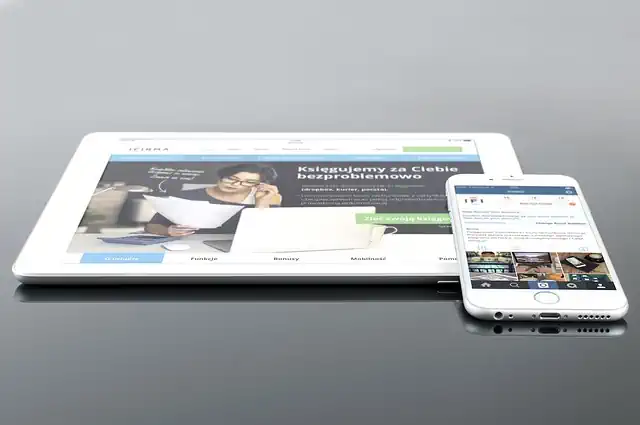How To Save Money To Pay Off Student Loans
“Smart strategies to tackle student debt and achieve financial freedom.”
Introduction

Saving money to pay off student loans can be a daunting task, but it is essential to take control of your finances and pay off your debt as soon as possible. In this article, we will discuss some practical tips on how to save money to pay off your student loans.
Create a Budget Plan
Paying off student loans can be a daunting task, especially if you have a large amount of debt. However, with a little bit of planning and discipline, it is possible to pay off your loans and become debt-free. One of the first steps you can take is to create a budget plan.
Creating a budget plan is essential for anyone who wants to save money. It helps you to track your expenses and identify areas where you can cut back. To create a budget plan, start by listing all of your monthly income and expenses. This includes your salary, any side hustles, and any other sources of income. Then, list all of your monthly expenses, including rent, utilities, groceries, transportation, and any other bills you have.
Once you have a clear picture of your income and expenses, you can start to identify areas where you can cut back. Look for expenses that are not essential, such as eating out or buying new clothes. These are areas where you can make significant savings. You can also look for ways to reduce your essential expenses, such as finding a cheaper apartment or using public transportation instead of owning a car.
Another way to save money is to set a budget for each category of expenses. For example, you can set a budget for groceries and try to stick to it each month. This will help you to avoid overspending and ensure that you have enough money left over to put towards your student loans.
It is also important to prioritize your expenses. Make sure that you are paying your bills on time and that you have enough money set aside for any emergencies that may arise. This will help you to avoid late fees and other penalties that can add up over time.
Once you have identified areas where you can cut back and set a budget for each category of expenses, it is time to start saving. One of the best ways to save money is to automate your savings. This means setting up a direct deposit from your paycheck into a savings account each month. This will help you to save money without even thinking about it.
You can also look for ways to earn extra income. This can include taking on a side hustle, selling items you no longer need, or even renting out a spare room in your apartment. Any extra income you earn can be put towards your student loans, helping you to pay them off faster.
Finally, it is important to stay motivated. Paying off student loans can be a long and challenging process, but it is worth it in the end. Keep reminding yourself of your goals and the progress you have made. Celebrate small victories along the way, such as paying off a small loan or reaching a savings milestone.
In conclusion, creating a budget plan is an essential step in saving money to pay off student loans. By tracking your expenses, identifying areas where you can cut back, and setting a budget for each category of expenses, you can start to save money and put it towards your loans. Remember to prioritize your expenses, automate your savings, and stay motivated. With a little bit of planning and discipline, you can become debt-free and achieve financial freedom.
Cut Down on Unnecessary Expenses
Paying off student loans can be a daunting task, especially when you’re just starting out in your career. However, with a little bit of planning and discipline, it’s possible to save money and pay off your loans faster than you thought possible. One of the best ways to do this is by cutting down on unnecessary expenses.
The first step in cutting down on unnecessary expenses is to take a close look at your budget. Make a list of all your monthly expenses, including rent, utilities, groceries, and transportation. Then, take a look at your discretionary spending, such as eating out, shopping, and entertainment. This is where you can make the biggest impact on your budget.
One of the easiest ways to cut down on unnecessary expenses is to eat out less often. Eating out can be expensive, and it’s easy to spend more than you intended. Instead, try cooking at home more often. Not only is it cheaper, but it’s also healthier. You can also save money by packing your lunch instead of eating out during the workday.
Another way to cut down on unnecessary expenses is to shop smarter. Instead of buying new clothes every season, try shopping at thrift stores or consignment shops. You can find great deals on gently used clothing, and you’ll be doing your part to reduce waste. You can also save money by buying generic brands instead of name brands. Many generic brands are just as good as their more expensive counterparts.
Entertainment is another area where you can cut down on unnecessary expenses. Instead of going out to the movies or a concert, try hosting a movie night or game night at home. You can also find free events in your community, such as concerts in the park or art exhibits. If you do want to go out, look for deals and discounts online before you buy your tickets.
Transportation is another area where you can save money. If you live in a city with good public transportation, consider taking the bus or subway instead of driving. You can also save money by carpooling with coworkers or friends. If you do need to drive, try to consolidate your errands into one trip to save on gas.
Cutting down on unnecessary expenses can be challenging, but it’s worth it in the long run. By saving money now, you’ll be able to pay off your student loans faster and start building your financial future. Remember, every little bit counts, so even small changes can make a big difference over time.
In conclusion, paying off student loans can be a daunting task, but it’s possible to save money and pay off your loans faster by cutting down on unnecessary expenses. Start by taking a close look at your budget and identifying areas where you can save money. Try cooking at home more often, shopping smarter, and finding free or low-cost entertainment options. By making these small changes, you’ll be on your way to financial freedom in no time.
Find a Side Hustle
Are you struggling to pay off your student loans? You’re not alone. According to the Federal Reserve, Americans owe over $1.7 trillion in student loan debt. It can be overwhelming to think about how to pay off such a large amount, but there are steps you can take to make it more manageable. One of the most effective ways to pay off your student loans is to find a side hustle.
A side hustle is a job or business that you do in addition to your full-time job. It can be anything from freelance writing to dog walking to selling handmade crafts on Etsy. The key is to find something that you enjoy and that can bring in extra income.
One of the benefits of a side hustle is that you can work on it in your spare time. This means that you can keep your full-time job and still make progress on paying off your student loans. It may require some sacrifice, such as giving up some of your free time, but the payoff can be worth it.
When looking for a side hustle, consider your skills and interests. Do you have a talent for writing or graphic design? Consider freelancing in those areas. Are you an avid runner or cyclist? Offer to be a personal trainer or coach. Do you enjoy cooking or baking? Start a catering or meal prep business.
Another option is to monetize a hobby. Do you enjoy knitting or sewing? Sell your creations on Etsy. Are you a talented photographer? Offer your services for events or portraits. The possibilities are endless.
Once you’ve identified your side hustle, it’s important to set goals and create a plan. Determine how much extra income you need to make each month to put towards your student loans. Then, create a schedule for when you will work on your side hustle. This may mean waking up early or staying up late, but it’s important to stick to your schedule to make progress.
It’s also important to be realistic about how much time and energy you can devote to your side hustle. Don’t take on too much and risk burning out. Start small and gradually increase your workload as you become more comfortable.
When it comes to finding clients or customers for your side hustle, utilize social media and word of mouth. Post about your services on Facebook or Instagram and ask friends and family to spread the word. You can also join online communities or forums related to your side hustle to connect with potential clients.
Remember, the goal of your side hustle is to bring in extra income to put towards your student loans. Be sure to track your earnings and expenses to ensure that you are making progress towards your goal. Consider setting up a separate bank account for your side hustle income to keep it separate from your regular income.
In conclusion, finding a side hustle is a great way to pay off your student loans. It may require some sacrifice and hard work, but the payoff can be worth it. Identify your skills and interests, set goals and create a plan, and utilize social media and word of mouth to find clients. With dedication and persistence, you can make progress towards becoming debt-free.
Refinance Your Student Loans
If you’re struggling to pay off your student loans, you’re not alone. According to the Federal Reserve, Americans owe over $1.7 trillion in student loan debt. It can be overwhelming to think about how to pay off such a large amount, but there are steps you can take to make it more manageable. One option is to refinance your student loans.
Refinancing your student loans means taking out a new loan to pay off your existing loans. The new loan typically has a lower interest rate, which can save you money over the life of the loan. It can also simplify your payments by combining multiple loans into one.
Before you decide to refinance, it’s important to understand the pros and cons. Here are some things to consider:
Pros:
1. Lower interest rates: Refinancing can lower your interest rate, which can save you money over the life of the loan. This can be especially beneficial if you have high-interest private loans.
2. Simplified payments: Refinancing can combine multiple loans into one, which can make it easier to manage your payments.
3. Flexible repayment options: Refinancing can offer flexible repayment options, such as longer repayment terms or variable interest rates.
Cons:
1. Loss of federal loan benefits: If you refinance federal loans, you may lose certain benefits, such as income-driven repayment plans or loan forgiveness programs.
2. Credit requirements: To qualify for refinancing, you typically need a good credit score and a steady income.
3. Fees: Some lenders charge fees for refinancing, such as application fees or origination fees.
If you decide to refinance, here are some steps to take:
1. Shop around: Compare rates and terms from multiple lenders to find the best option for you. Look for lenders that offer competitive rates, flexible repayment options, and no fees.
2. Check your credit score: Your credit score will play a big role in whether you qualify for refinancing and what interest rate you’ll receive. Check your credit score and take steps to improve it if necessary.
3. Gather your documents: You’ll need to provide documentation, such as pay stubs and tax returns, to apply for refinancing. Gather these documents ahead of time to make the process smoother.
4. Apply for refinancing: Once you’ve found a lender you like, apply for refinancing. The lender will review your application and let you know if you’re approved.
5. Pay off your existing loans: If you’re approved for refinancing, the new lender will pay off your existing loans. You’ll then make payments to the new lender.
Refinancing your student loans can be a smart way to save money and simplify your payments. However, it’s important to weigh the pros and cons and shop around for the best option. With some research and preparation, you can take control of your student loan debt and work towards a brighter financial future.
Apply for Loan Forgiveness Programs
Paying off student loans can be a daunting task, especially if you have a large amount of debt. However, there are ways to make the process easier and more manageable. One of the most effective ways to save money on student loan payments is to apply for loan forgiveness programs.
Loan forgiveness programs are designed to help borrowers who are struggling to make their monthly payments. These programs offer a variety of benefits, including reduced interest rates, lower monthly payments, and even complete forgiveness of your student loan debt.
One of the most popular loan forgiveness programs is the Public Service Loan Forgiveness (PSLF) program. This program is available to borrowers who work in certain public service jobs, such as government or non-profit organizations. If you qualify for the PSLF program, you may be able to have your student loan debt forgiven after making 120 qualifying payments.
Another loan forgiveness program is the Teacher Loan Forgiveness program. This program is available to teachers who work in low-income schools or educational service agencies. If you qualify for this program, you may be able to have up to $17,500 of your student loan debt forgiven.
If you work in the healthcare field, you may be eligible for the Health Professions Loan Forgiveness program. This program is available to healthcare professionals who work in underserved areas. If you qualify for this program, you may be able to have up to $50,000 of your student loan debt forgiven.
In addition to these programs, there are also state-specific loan forgiveness programs that you may be eligible for. These programs vary by state, so it’s important to research the options available in your area.
To apply for loan forgiveness programs, you will need to fill out an application and provide documentation to prove that you meet the eligibility requirements. It’s important to carefully review the requirements for each program before applying to ensure that you meet all of the qualifications.
While loan forgiveness programs can be a great way to save money on student loan payments, it’s important to keep in mind that they are not a guarantee. Some programs have limited funding and may not be available to all borrowers. Additionally, some programs may require you to make payments for a certain period of time before you are eligible for forgiveness.
If you are struggling to make your student loan payments, it’s important to explore all of your options for loan forgiveness and repayment. In addition to loan forgiveness programs, you may also be able to lower your monthly payments through income-driven repayment plans or by refinancing your loans.
Overall, applying for loan forgiveness programs can be a great way to save money on student loan payments and make the repayment process more manageable. By carefully reviewing the eligibility requirements and submitting a complete application, you may be able to have a portion or all of your student loan debt forgiven.
Use Automatic Payments
Paying off student loans can be a daunting task, especially if you have a large amount of debt. However, with the right strategies, it is possible to pay off your loans and become debt-free. One of the most effective ways to save money to pay off your student loans is to use automatic payments.
Automatic payments are a convenient and easy way to ensure that your loan payments are made on time every month. By setting up automatic payments, you can avoid late fees and penalties, which can add up over time and increase the amount of money you owe. Additionally, automatic payments can help you stay on track with your budget and ensure that you are making progress towards paying off your loans.
To set up automatic payments, you will need to contact your loan servicer and provide them with your bank account information. Once you have set up automatic payments, your loan servicer will deduct the amount of your monthly payment from your bank account on the same day each month. This means that you will not have to worry about remembering to make your payments or writing checks each month.
Another benefit of using automatic payments is that some loan servicers offer a discount on your interest rate if you sign up for automatic payments. This can help you save money over the life of your loan and reduce the amount of time it takes to pay off your debt.
In addition to using automatic payments, there are other strategies you can use to save money to pay off your student loans. One of the most effective ways to save money is to create a budget and stick to it. By tracking your expenses and identifying areas where you can cut back, you can free up more money to put towards your loans.
Another strategy is to look for ways to increase your income. This could include taking on a part-time job, freelancing, or starting a side business. By earning extra money, you can put more towards your loans and pay them off faster.
Finally, it is important to stay motivated and focused on your goal of becoming debt-free. This can be challenging, especially if you have a large amount of debt or if you are struggling to make ends meet. However, by staying positive and reminding yourself of the benefits of being debt-free, you can stay on track and achieve your goal.
In conclusion, using automatic payments is a simple and effective way to save money to pay off your student loans. By setting up automatic payments, you can avoid late fees and penalties, stay on track with your budget, and even save money on your interest rate. Additionally, by creating a budget, increasing your income, and staying motivated, you can accelerate your progress towards becoming debt-free. With the right strategies and mindset, you can pay off your student loans and achieve financial freedom.
Seek Professional Financial Advice
Paying off student loans can be a daunting task, especially if you have a large amount of debt. However, with the right strategies and mindset, it is possible to pay off your student loans and become debt-free. One of the most important steps in this process is seeking professional financial advice.
Financial advisors can provide valuable guidance on how to manage your finances and save money to pay off your student loans. They can help you create a budget, set financial goals, and develop a plan to achieve those goals. They can also provide advice on how to reduce your expenses, increase your income, and invest your money wisely.
When seeking professional financial advice, it is important to choose a reputable advisor who has experience working with clients in similar situations. Look for advisors who are certified financial planners (CFPs) or who have other relevant certifications. You can also ask for referrals from friends or family members who have worked with financial advisors in the past.
Once you have found a financial advisor, schedule a consultation to discuss your financial situation and goals. Be honest about your income, expenses, and debt, and ask for advice on how to reduce your debt and save money. Your advisor may recommend strategies such as consolidating your loans, refinancing your loans, or applying for loan forgiveness programs.
In addition to seeking professional financial advice, there are other steps you can take to save money and pay off your student loans. One of the most effective strategies is to create a budget and stick to it. This means tracking your expenses and income, and making sure that you are spending less than you earn. You can use budgeting apps or spreadsheets to help you keep track of your finances.
Another way to save money is to reduce your expenses. This may mean cutting back on non-essential expenses such as dining out, entertainment, or travel. You can also look for ways to save money on essential expenses such as groceries, utilities, and transportation. For example, you can shop for groceries at discount stores, use coupons, or carpool to work.
Increasing your income is another effective strategy for paying off your student loans. This may mean taking on a part-time job, freelancing, or starting a side business. You can also look for ways to earn passive income, such as investing in stocks or real estate.
Finally, it is important to stay motivated and focused on your goal of paying off your student loans. This may mean setting milestones and celebrating your progress along the way. You can also find support from friends, family members, or online communities of people who are also working to pay off their student loans.
In conclusion, paying off student loans can be a challenging but achievable goal. Seeking professional financial advice, creating a budget, reducing expenses, increasing income, and staying motivated can all help you achieve your goal of becoming debt-free. Remember that every small step you take towards paying off your student loans brings you closer to financial freedom.
Conclusion
Conclusion: Saving money to pay off student loans requires discipline, planning, and sacrifice. By creating a budget, reducing expenses, increasing income, and taking advantage of loan repayment programs, individuals can make progress towards paying off their student loans and achieving financial freedom. It may not be easy, but with determination and a clear plan, it is possible to successfully pay off student loans and move towards a brighter financial future.







